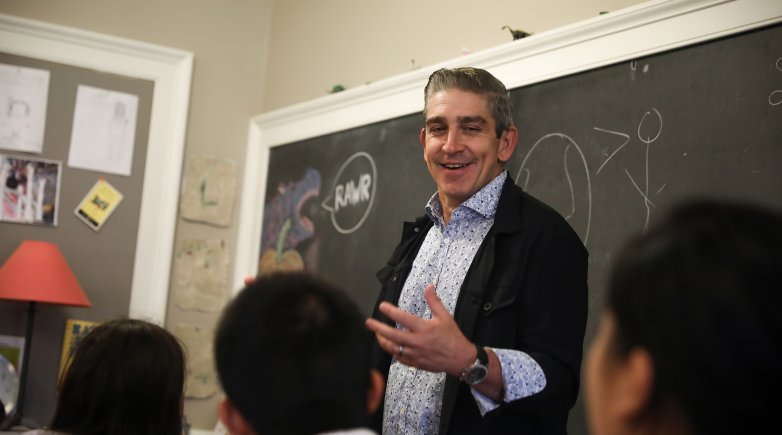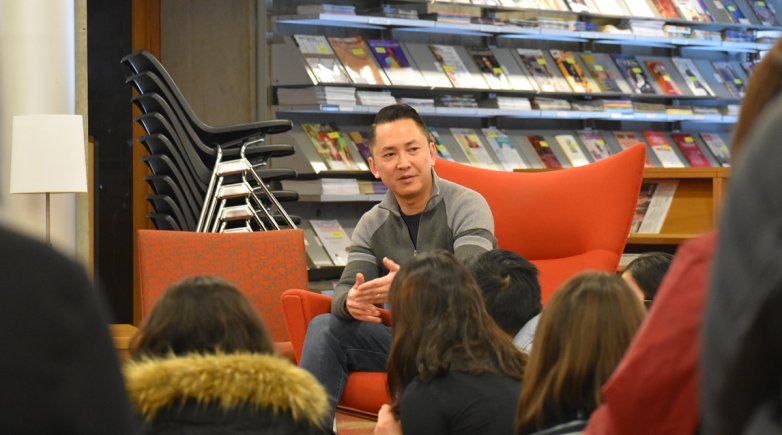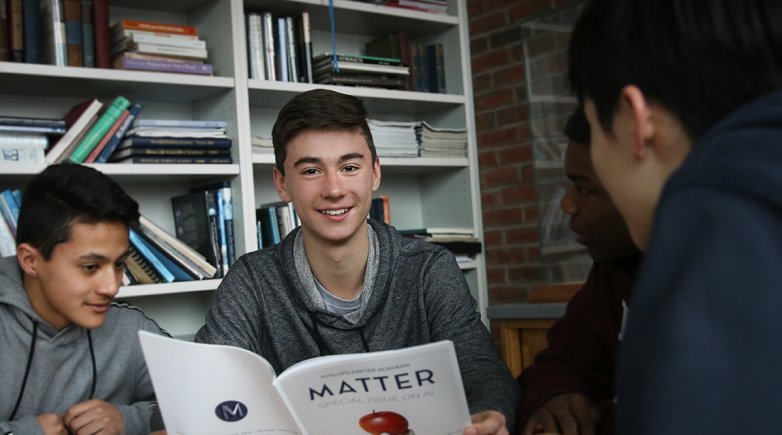Finding common ground
Poet and author Richard Blanco shares his experiences and advice about writing from life.
Poet Richard Blanco discusses writing with all five senses with students in English Instructor Erica Lazure's class.
The excitement was palpable in Instructor Erica Lazure’s English class when author Richard Blanco entered the room. The students seated around the Harkness table had spent their summer immersed in Blanco’s coming-of-age memoir, The Prince of Los Cocuyos, and were eagerly anticipating his campus visit.
Blanco has written more than a dozen poetry collections and chapbooks. In 2013, he catapulted to national fame after being named President Barack Obama’s second inaugural poet.
His latest book was the assigned reading for all 201 incoming preps — a first for the Academy. According to Tyler Caldwell, English instructor and Ninth Grade Program coordinator, the goal of the common reading was to create a sense of community and a base for discussion within the prep class. Blanco’s novel offers much to talk about as he explores his immigrant Cuban and American childhood in Miami, his homosexuality, and the often painful and difficult acculturation process of his parents and grandparents.
The author’s daylong stay at the Academy was eventful. It included meeting with the Latinx and the Gender and Sexuality Alliance affinity clubs; speaking at assembly; hosting a lunch conversation in Phillips Hall where students engaged with him more casually; and visiting classes.
In-class lesson
Lazure’s class began with each student introducing themselves and sharing an interesting fact that no one would know about them. It was an apt icebreaker for Blanco’s lesson on the use of detail in writing. The first thing he told students was to forget the most popular writing advice: show, don’t tell. Instead, he encouraged them to delve deeper and unpack the meaning of what he believes has become a hollow cliché.
He advised the young writers to focus on the five senses to bring readers into the world they are describing. “Sensory details are the bridge between two understandings — the writer and the reader,” he explained. “We experience the world through our five senses, so you have to use sensory details because they are the language of the experience of what it means to be human.”



